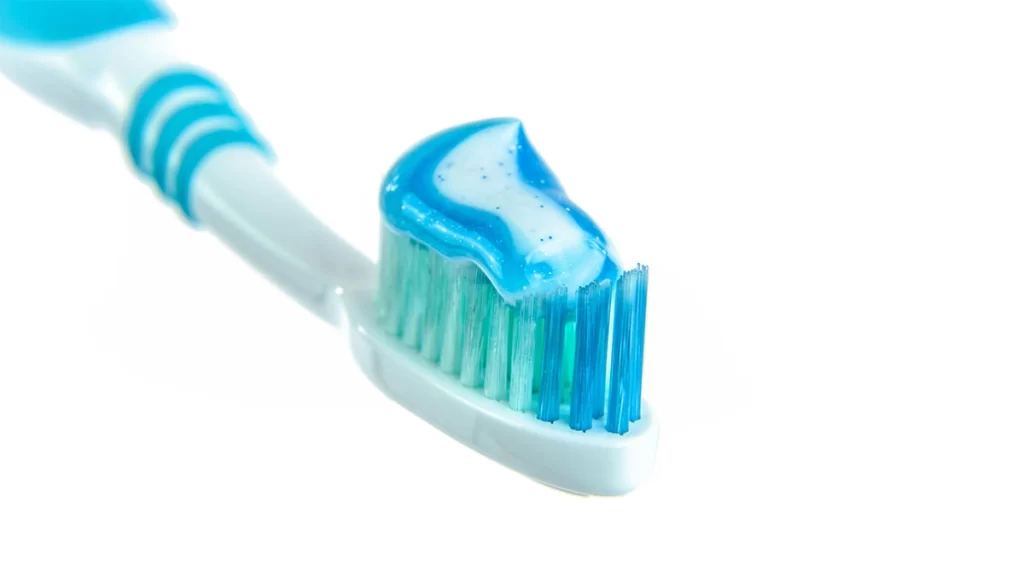Typically, bleeding is a sign of injury. When it comes to bleeding gums, however, the cause is not always straightforward. Some medical conditions can cause bleeding of the gums. For most people, it could be an indication of poor oral hygiene habits. This is one of many reasons why regular brushing and flossing are so important.
If this happens to you, don’t panic right away: the reasons for bleeding gums aren’t typically catastrophic. Read on to learn more about gum disease treatment, as well as potential underlying causes.
Common Causes Of Bleeding Gums
For the majority of people, bleeding gums are caused by insufficient removal of plaque: the soft, sticky residue left by food, which can build up over time without vigorous brushing and flossing. Plaque contains millions of bacteria that can cause gum disease and even decay if it’s not removed in a timely manner. If not treated, gum disease can cause the gums to erode, which is irreversible.
That may sound scary, but the good news is that gum disease is easy to treat when discovered early, as gingivitis. This is one big reason why it’s important to schedule regular cleanings with your dentist. If gum disease is left untreated, it may progress into periodontitis, which can result in bone and tooth loss. Treatment would require a dental specialist called a periodontist.
Other common causes of gum disease include:
- Diabetes
- Heart disease
- Pregnancy (due to increasing progesterone, the pregnancy hormone, which increases blood flow to the gums)
- Certain cancers, such as leukemia
- Stress
- Smoking
- Oral herpes
- HIV or AIDS
- Lack of vitamin C or K
- Hemophilia
Gum Disease Treatment At Home

You can try the following at-home remedies for bleeding gums before calling your dentist:
Practice Good Oral Hygiene
First things first: make sure your oral care routine is sufficient. Experts recommend brushing at least twice a day, for two minutes. Afterward, you should floss to remove any plaque or buildup that was missed with the brush. You can use a regular toothbrush, but investing in an electric brush is highly recommended.
Apply Ice To Painful Areas
Just as you might apply ice to other types of bleeding, you can do the same to your gums. Ice can help soothe minor injuries or sores, as well as reduce any swelling of the gums. This is less of a treatment for gum disease than a temporary reprieve from the symptoms, so it should be used in addition to other treatment remedies.
Follow Brushing With Mouthwash
A good antibacterial mouthwash helps kill any remaining bacteria in your mouth after brushing. They are also effective at reducing inflammation in the gums and preventing gingivitis. You can find some that are specifically designed to target gingivitis, but any mouthwash containing hydrogen peroxide and chlorohexidine will do.
Use A Warm Saltwater Rinse
If you don’t have any mouthwash on hand, you can try a saltwater mixture to reduce oral bacteria. Simply add half a teaspoon of salt to a cup of warm water, and swish it well for a minimum of 30 seconds before spitting out. Doing this several times a day can help reduce inflammation and prevent new bacteria from growing.
Stop Smoking
You probably already know that smoking is not good for your health; this includes your gum health. Try a patch or gum to begin kicking the habit, and you’ll notice your overall health begins to improve.
Gum Disease Treatment At The Dentist

If home remedies don’t do the trick, you’ll want to call your dentist to schedule an appointment. You may be diagnosed with gum disease, or perhaps the bleeding is due to another underlying cause. Whatever the reason, your dentist is equipped to solve the mystery. You may be recommended to a gum specialist depending on the severity of the condition, or recommended one of the following treatments:
- Improved oral hygiene habits
- Antibiotics
- A deep dental cleaning that involves root planing and tooth scaling
- Surgery to reduce the pockets around the teeth where bacteria can hide
- In severe cases, laser periodontal surgery
If your gum bleeding is not linked to gum disease, you may be recommended additional testing to rule out other causes such as diabetes, blood clotting disorders, or vitamin deficiencies. Treatment will then depend on a different diagnosis.
When To See Your Dentist

It can be alarming to see your gums bleeding. Because this is often an indicator of poor oral hygiene habits, you may want to brush and floss more often, keeping in mind that affected gums can bleed more at first when not used to proper care. However, if the bleeding persists, you will want to contact your dentist for a diagnosis and professional treatment. Ongoing pain and discomfort is not something anyone should live with.
Your dentist will tell you whether your current teeth cleaning schedule is sufficient or if you should visit more often to maintain good oral health. When your mouth is healthy, the rest of you is healthier, too.
Gum Disease Treatment At Eriks Dental Group – Boynton Beach
Gum disease affects many people; treating it early and improving your oral hygiene habits will make a difference. If your gums have been bleeding despite trying the aforementioned home remedies, it may be time for an appointment.
Eriks Dental Group is a renowned family dental practice in Boynton Beach. A “one-stop shop” place for everyone in the family, Dr. Ty Eriks treats everyone from first baby teeth to the first set of dentures. Other dental services include root canals, veneers, professional teeth whitening, Invisalign, cosmetic procedures, and more.
Keep your teeth looking and feeling their best with regular cleanings by calling 561-733-4004 today.

